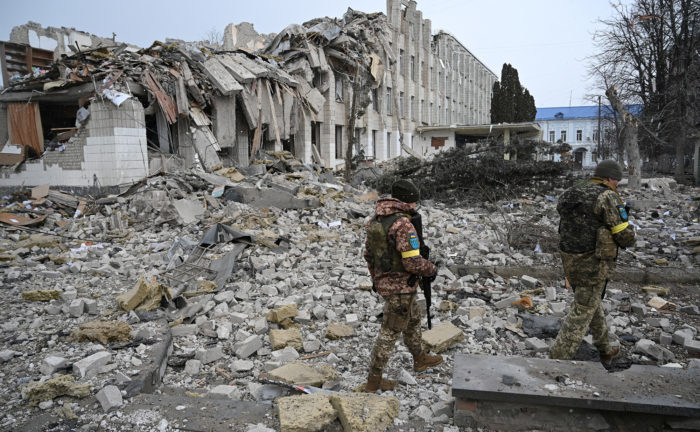
The Transformation of Brand Russia
Brands are the associations linked to a name or symbol, and these connections are usually created over time. At first the Nike swoosh was just a swoosh, but today it has enormous meaning. Once created, brands are difficult to change. Brand repositioning, shifting the meaning of a name, is one of the great marketing challenges.
All of which makes the transformation of the Russia brand so shocking. In just a few days, the brand of Russia has completely changed.
Brand Russia in Recent Years
In recent years, the brand of Russia has had a complex set of associations. There were traces of the old Soviet Union, combined with images of the Kremlin. Vladimir Putin, a former KGB agent, was a somewhat scary figure. Reports of Putin assassinating his critics were dark and hard to process. Russia was known for doping athletes and siding with unsavory characters like Bashar al-Assad in Syria. At the same time, Russia had a vibrant, opening economy. It was certainly not a global threat.
Russia wasn’t a perfect brand like Switzerland, Denmark or Japan, but it wasn’t a profoundly negative brand, either.
Brand Russia Today
Now everything has changed for brand Russia. The country is seen as an aggressive, evil player, bombing civilians, hospitals and schools. Russia is willing to disrupt the global economy and food production in a bid to further its imperialistic goals. It is a country that has eliminated free press. Putin is a calculating, distant and dangerous dictator.
In an interesting twist, efforts to draw a line between Putin and ordinary citizens seem to be falling flat. Putin, Russia, Russians…all threatening, evil players.
The impact is profound. Brands are racing to exit Russia. Some brands have tried to argue that remaining in the country was the ethical move, since the people of Russia need food and clothes. These arguments have generally missed the mark. Uniqlo, for example, tried to stay open in Russia but quickly backtracked in the face of opposition.
Countries that fail to condemn Russia, such as China and India, are suspect, too.
The implications are vast. Investments in Russia? No. Summer vacations to Russia? No. Sporting events with athletes from Russia? No. On a smaller scale – hiring someone from Russia?
The Outlook
It isn’t clear what happens next in Ukraine. Will Russia press forward with the invasion? Or will Russia settle with taking just part of the country? This would make sense, though nothing has made much sense so far.
What is clear is that the negative brand associations will remain in place. Brands only change when there is information that replaces the negative associations. A cease fire by the Russian army won’t get people thinking good things about Russia. Even a change in the government won’t result in positive associations.
These are generational perceptions.
The Impact
The transformation of brand Russia will have a major impact in two ways.
First, Russia will be isolated globally. Brand Russia joins a select group of country brands like North Korea and Myanmar. These are not countries people visit, move to, or invest in. The Russian economy will continue; people have to eat and buy clothes. Imports will fall, however, and local brands will come to dominate the market. But Russian brands will not be globally competitive.
Second, Russia will have enormous influence in eastern Europe simply because the country is scary. When a nation is willing and able to attack another with tanks, flame-throwers and threats of nuclear bombs, it has to be taken seriously. Everything Russia says and does will be important.
Perhaps this was Putin’s goal all along: to transform the country from a smaller, opening market into a global power that people listen to and respect simply because of its capability for ghastly behavior.
The flaw in his logic was that it isn’t enough to have a brand that people know and respect; you have to have a brand that provides a benefit and attracts people.
Putin has turned Russia into a toxic global brand that people will flee and avoid. This isolation will result in a weak country that people still fear, a bit like an erratic person you might encounter on a subway platform. You notice them, fear them, and move away as quickly as possible.
Comments RSS Feed